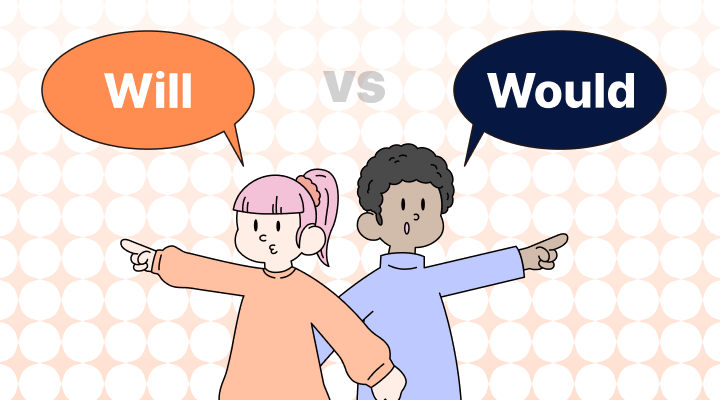He would go if he has time. → He will go if he has time.
What is the difference between would and will?
Would is the past tense of will. The sentence above should be in all present tense as implied by the present tense has. If the sentence used had instead of has, then using would would be correct:
He would go if he had time.
Let’s take another example.
He will go if he could. → He would go if he could.
Here, we have the word could which is the past tense of can. Hence, using the past tense would instead of will would be correct. Conversely, if the word had been the present tense can instead of could, then using will would be appropriate:
- He will go if he can.
Will also expresses actual situations that are to happen in the future while would expresses hypothetical situations that didn’t happen or aren’t actually happening.
- I will go to the concert tomorrow because I bought tickets.
- I would go to the concert tomorrow if I had money.
Here are sample sentences you can refer to:
- I will go tomorrow in the morning.
- Yesterday, I would have gone to the musical if I hadn’t come down with a cold.
- I would study art if I could do it all over again.
- Adam will take the exam again next month.
- Valerie will have to check the product quality when the samples come in.
- They would have eaten it if you hadn’t burned the meat.
- Justin will have to think of a different way to solve the problem.
Do you think you’ve got it down now? You can try some practice questions to test your understanding of the difference between will and would:
- Pamela will/would start graduate school next semester.
- I think Ian will/would have gone home if Wendy wasn’t there.
- The company will/would have gone public if the CEO wasn’t so skeptical.
- The investigators will/would visit the witness tomorrow to interrogate her.
- Jessica will/would have gone to college if she could have afforded it.
- I will/would love to test drive a Tesla before deciding what car to buy.
- They will/would go on without her if she falls behind.
- Wide spectrum sunblock will/would block out both UVA and UVA rays.
- The windows will/would get cleaned on the weekend.
- The computer will/would be cheaper if you weren’t getting all the upgrades.
What about when using will or would in the beginning of a sentence?
- Will you go to the post office with me?
- Would you go to the post office with me?
There is no big difference in meaning between using will or would in the beginning of a question, but using would is generally seen as more polite than using will.
If you’re not a native speaker of English, recognizing the difference between the use of will and would may be confusing. If you’re still having trouble, feel free to use Engram where you can input your English sentences to get immediate feedback and suggestions on your writing.

Answers to the practice questions:
- will
- would
- would
- will
- would
- would
- will
- will
- will
- would
Cindy is a language-loving American writer for the Engram's blog. Her love for languages, including her first language English, is what drives her when she writes and translates for a living. In her spare time, she enjoys reading, badminton, The Office, watching meme videos on YouTube, and singing karaoke.












